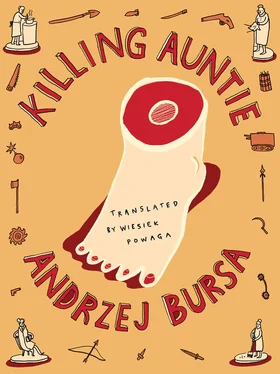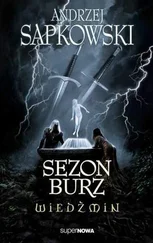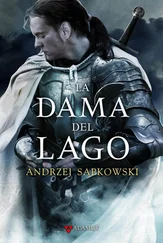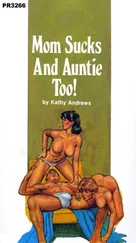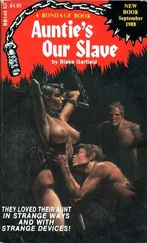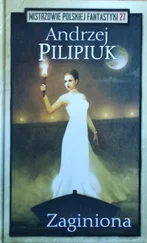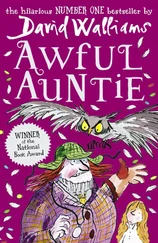“It’s too risky, darling. It’s my problem.”
“I thought you’ve understood by now that problems aren’t ‘yours’ or ‘mine’ — only ‘ours,’” She answered contrarily. “And if not, too bad.”
“But Teresa, you know the situation, I’m not hiding anything from you. I simply don’t want us to go out on our first spring walk with such cumbersome baggage.”
“It would be more cumbersome and unpleasant if you were to do it on your own. Isn’t that so, my little one?”
“Yes, but do I have the right to put that burden on your shoulders?”
“It’s like our baby. A consequence of me being with you.”
On Sunday morning, some time after eleven, we got off a bus at the edge of a forest. Springtime and blue skies were all around us. The paths were dry but the fields shimmered under a spread of snow. We squinted our eyes against the sun.
“Isn’t that parcel too heavy for you, darling?” I asked.
“No, my little one, it’s not.”
“Come on, let me carry it for you.”
“Certainly not. You’re carrying the heavier one anyway.”
“That’s ok, you are a woman. I should carry you in my arms — not make you carry parcels.”
“The times we live in, eh?”
“You teaser, you,” I laughed and put my arm around Teresa. She looked into my face, her eyes burning with fire.
“Ah, my little one, I’m so happy.”
We put our parcels on the ground and began to kiss.
“Someone’s coming,” said Teresa suddenly. “Stop it.”
We saw a man approaching slowly from the fields, carrying a gun. We picked up our parcels and walked on. The official cap of the forester reminded me of things I would rather forget today. Teresa noticed the change in my face.
“Why so sad, my little one?”
“Oh, it’s nothing, nothing really,” I replied, and then added sternly. “Don’t look at the sun.”
“Because?”
“Because you will damage your eyes, madame.”
“What …? Ah, madame will damage her eyes … Oh, my little one …”
At the edge of the forest stood the yellow, ungainly building of the inn. We were the only customers there, except for a coachman in a padded work jacket drinking beer at the bar. Whenever I passed the inn before, the iron grille on its door was always shut. To this day it remains a mystery to me why it was open on that April Sunday. We sat down by the window, beyond which a panorama of the surrounding wooded hills spread out. We put our parcels on the empty chairs. After a while we were approached by a boy in a dirty apron and a face that was meant to show us we had disturbed his peace. After some protracted negotiations he agreed to bring us sausages and tea. We ate with an appetite of kids on a field trip, joking and laughing. When we finished our tea, we lit our cigarettes. The sky began to turn gray. Warmed and tired, we were looking at each other’s faces and hands, which reminded us of our pleasures. We knew it was a beautiful moment. The gray mist clinging to the treetops invited a mood of longing and dreaming. So I began:
“You may not know it, darling, but my father lives in Buenos Aires.”
“In Buenos Aires? And you never told me?”
“I’m telling you now. He lives in Buenos Aires and is a very rich man. The only problem is how to get there. Do you think it’s impossible?”
“I don’t know, love,” said Teresa softly, “but since I met you nothing is impossible for me. Before I met you I had never believed in any possibility of changing my fate. And to tell the truth, I never thought of it. But now, when I’m involved in such an extraordinary affair … It is extraordinary, isn’t it, love? But maybe I’m hurting you, talking about it?”
I didn’t reply. My eyes fixed on the horizon, I sat in silence, deeply moved and happy. Teresa’s father was a forester and she spent her childhood and teenage years among the woods and lakes. Her first steps were blessed by the purity of nature, just as mine were cursed by neurosis. My longing for the forests and animals, stifled by years of misery, and forgotten in the recent days of the struggle with the corpse, now began to stir inside me uncomfortably. Many times I tried to see it in the cold light of reason, that it was all a question of love, that I should focus on happiness, for Teresa loved me too. Indeed I had many moments of true happiness, yet I could not free my mind from anguish. And it wouldn’t be so bad if it weren’t for the matter of my corpse. I knew that by hiding my feelings from Teresa I was deceiving her, and it hurt me. I could try and summon all my strength and remove the rest of the remains. But I had no strength left. Teresa competed with the corpse, and won. Over the last few days I hadn’t undertaken any actions, only once slipping out at night with a small package wrapped in a newspaper and discarding the contents on a rubbish dump frequented by cats and crows. I felt burdened by the corpse like a man burdened with a family, of whose existence he doesn’t dare to tell his mistress, while his inherent decency prevents him from shedding the burden. Even in the happiest moments, when walking with Teresa through empty fields, joyful and lighthearted, bursting with insuppressible laughter, so inextricably connected with our love, I carried the thought in my mind, which would suddenly flash like a signal — the corpse.
After a while I continued without looking at Teresa:
“I know a sea captain in Szczecin. A good man. When I was a child he used to carry me in his arms. An old, trusted family friend. I’ve learned he works now on a regular line to South America. Will you come with me?”
“Ah, Jerzy …” Teresa stroked my hands with her fingertips.
Quietly, in low voices, we began to plot our escape. We refrained from showing any excitement in anticipation of all the exotic places we were going to see. No feverish discussions, no falling for the thrill of planning. We spoke in a calm, factual manner. I deliberately pointed out the difficulties piling up before us, while slyly slipping in suggestions of how to overcome them. Teresa pondered them, knitting her brow, returning her opinion in slow, measured words. When at last we reached a contented silence, she said:
“Sometimes, when you are not with me, I feel you do not exist at all. I’m sure that in a few hours I’ll think this conversation is a dream. And yet you are real. I’m touching your skin and hair. My boy, my lover. You’ve put too much meaning into my life. Sometimes I feel it overwhelms me. But I know you cannot be any other way. I don’t think I would love you otherwise, if you weren’t full of all those mysteries I still know nothing about.”
I squeezed Teresa’s hand. She cheered me up. I felt like a good man. I gave a girl more than she expected. I made her happy the way I once made that old Capuchin priest in an empty church happy.
“Do you want to be with me?” I asked.
“I do.”
We threw the parcels into the river from a high, overgrown bank. We didn’t discuss their contents. Only on our way back through the woods did Teresa ask me, a little concerned:
“Darling, what was in my parcel?”
“Well, you know, surely …”
“Yes, but … which part?”
I remained silent.
“Come on, tell me. The leg?”
“Of course not, the leg would have been much heavier.”
“I don’t mean the whole leg …”
“Teresa, stop it.”
“You’re right. I’m sorry.”
She quickly lifted my hand to her lips. We sat down on a stack of logs in a clearing. Teresa took out two rolls and offered me one. Leaning on a log, I was contemplating the clouds drifting over the treetops.
“You know what, Elfie?”
“What, love?”
“Tomorrow I have national defense training again.”
Читать дальше
